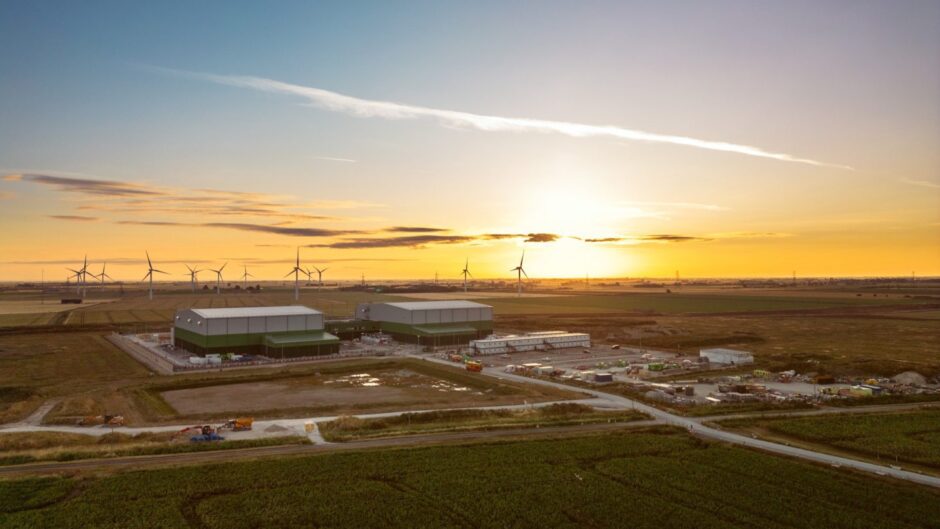
At ElecLink, we are connecting the UK with Europe by operating and managing an interconnector through the Channel Tunnel.
Interconnectors have a vital role to play in ensuring that the UK and countries across Europe have access to clean, reliable power. To continue to deliver this, the market needs clarity from governments on how we will collaborate on energy moving forward and a clear approach to delivering future interconnector projects.
A history of interconnectors
The energy transition is a global challenge that requires collaboration across borders, and by using interconnectors to share energy between the UK and countries such as France, we have been able to improve the security of supply of clean energy.
The UK’s position as a leader in renewables such as wind and solar, coupled with France’s large nuclear energy focus, means that connecting the two countries helps to address the challenge of intermittency.
For instance, in 2022 when France’s reactor fleet produced only 282 TWh due to repairs on multiple facilities, interconnectors enabled France to access energy generated in the UK. Likewise, when the wind isn’t blowing and the sun doesn’t shine so brightly, the UK can look to its neighbour across the channel – this is the integral role that continues to be played by interconnectors such as ElecLink.
We recently celebrated ElecLink’s second birthday, after commissioning the interconnector at the height of the energy crisis in 2022. We’ve seen firsthand the positive impact that interconnectors can have, with more than 13 TWh of electricity transported since going live – as well as our unique secure location (unlike other subsea interconnectors, the ElecLink cables are securely housed inside the Channel Tunnel) allowing us to bolster the UK’s energy security at a time when it is a top priority.
Accelerating the development of interconnectors between the UK and Europe is an opportunity for the new government to build on the market’s proven success.
Where we go from here
There is wide recognition in the industry that interconnectors are vital assets in the transition to net zero, and with a government that has made the green economy a clear focus it is important that there is clarity on next steps for the market.
Through re-engaging with our European neighbours on the topic of energy and energy security, the UK must recognise the value of interconnectors. This is both in terms of delivering decarbonisation by 2030, but also keeping energy bills down for everyday consumers by ensuring consistency of supply and access to the most affordable energy across Europe.
As conversations begin with European leaders on shaping a new relationship with the UK, it will be important that the market gets clarity on how to move projects forward.
For instance, improved regulatory alignment, which will better facilitate initiatives such as Projects of Common Interest or a similar framework for UK-EU interconnection projects, could help to accelerate the delivery of interconnectors, and, in turn boost renewable energy development – which is a clear focus for the Labour government following the lift on the de facto onshore wind ban.
With the Labour government’s ambition to ‘green the grid’ by 2030 and the announcement of the GB Energy Bill in the King’s speech, with further details to come in a statement for the Secretary of State, it is clear that the UK is looking to build energy assets to transition to low-carbon and zero emissions.
This ambition cannot be realised without the wider network, and interconnection will play a central role in this. As such, it’s important that there is a robust approach to moving forward with viable projects that can bring tangible benefits to not only the UK but also our European partners.
When it comes to interconnection between the UK and European nations it is important that both sides of the border are considered in the regulatory assessment of projects. An open dialogue with connecting authorities in countries like France are key considerations when it comes to the viability of a project, and ultimately its ability to make a positive impact.
For instance, as we look at plans for a second interconnector through the Channel Tunnel, we are looking to Ofgem and the government to collaborate with partners in France to support the projects that will deliver for both nations. Assessment – as well as reassessment – as circumstances change is crucial to ensuring that there is no deviation from Ofgem’s conditions and assessment criteria.
We’ve seen this happen with projects in recent times and a more pragmatic approach to GB interconnector regulation is needed moving forward.
There is no debate about the importance of interconnectors to the government’s mission of making the UK a clean energy superpower and leveraging the green economy to deliver growth. Interconnection will help ensure UK energy security and that of our European neighbours, and now is the time for us to take practical steps forward to spur progress.
